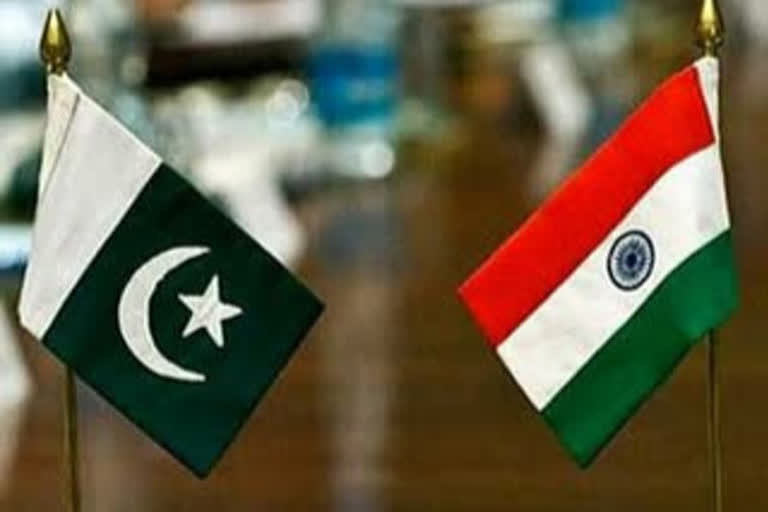Give us a brief detail about the Indus River Water Treaty?
Indus Waters Treaty was signed between India and Pakistan on 19 September 1960. Under its provisions, all the waters of the Eastern Rivers - Sutlej, Beas, and Ravi with an average annual flow of 33 million acre-feet (MAF) is allocated to India for its unrestricted use. Further, India is under an obligation to let flow all the waters of the Western rivers - Indus, Jhelum, and Chenab with an average annual flow of around 135 MAF. However, India is not to interfere with these waters, except for the domestic and non-consumptive use as provided in the Treaty. India has also been given the unrestricted right to generate hydroelectricity on the Western rivers subject to specific criteria for design and operation.
Pakistan has been raising concerns about the designs of Indian hydropower projects on the Chenab River? What is your say on this?
India is committed to the full utilization of its rights under the Treaty and is working towards it. We believe in an amicable solution to issues through discussion. During the meeting, Pakistan’s objections to the design of Indian hydropower projects on the Chenab River may be discussed. It is expected that with the continued discussions, a resolution will be reached on the issue.
Also read: Rs 2,000 notes not printed in last 2 years: Govt in Lok Sabha
How relevant is the Indus Waters Treaty for Indo-Pak relations?
This Treaty fixes and delimits the rights and obligations of each other concerning the use of Indus waters and makes a provision for the settlement of the issue through a well-defined mechanism.
How significant is the upcoming meeting in the context of the escalating tensions between India- Pak?
Under the provisions of the Treaty, it is mandatory for both the Commissioners to meet at least once a year alternately in India and Pakistan. The last year’s meeting which was earlier scheduled at New Delhi in March 2020 was cancelled for the first time since the signing of the Treaty, with mutual consent, given the pandemic situation. With the improvement in the situation, this mandatory meeting is being held with all Covid19 related protocols.
Also read: Batla House encounter: Court awards capital punishment to Ariz Khan
What new can be expected as this would be the first meeting after the abrogation of special provisions under Article 370? What would be India's role in the Indus Waters Treaty?
The Annual Meeting is mandatory and the agenda for the meeting shall be decided by both the Commissioners before the meeting. India is a signatory to this Treaty.
Going ahead what would be the implication given the water conflict and cooperation between India and Pak?
Article IX of the Treaty provides a multi-level mechanism for dispute resolution beginning from Commissioners, Government and then to the third party.
The Indus Commissioners of India and Pakistan will be at the annual meeting of the Permanent Indus Commission. It will also be the first meeting between the two commissioners after the abrogation of special provisions under Article 370 that gave special status to Jammu and Kashmir. The state was later carved into two union territories -- Ladakh, and Jammu and Kashmir.
According to reports, India has cleared several hydropower projects in Ladakh. They are Durbuk Shyok (19 MW), Shankar (18.5 MW), Nimu Chilling (24 MW), Rondo (12 MW), Ratan Nag (10.5 MW) for Leh, while Mangdum Sangra (19 MW), Kargil Hunderman (25 MW) and Tamasha (12 MW) have been cleared for Kargil.
Also read: Artist Subhaprasanna appears before ED in Saradha case
Brief background as to why the IWT was necessary?
India’s Indus Commissioner PK Saxena said that after the partition, the rights and obligations on divided waters were necessary.
According to the Ministry of Jal Shakti, Department of Water Resources, River Development, Ganga Rejuvenation, at the time of independence, the boundary line between the two newly created independent countries - Pakistan and India was drawn right across the Indus Basin, leaving Pakistan as the lower riparian.
Moreover, two important irrigation headworks, one at Madhopur on Ravi River and the other at Ferozepur on Sutlej River, on which the irrigation canal supplies in Punjab (Pakistan) had been completely dependent, were left in the Indian Territory.
A dispute thus arose between the two countries regarding the utilization of irrigation water from existing facilities.
Negotiations held under the good offices of the International Bank for Reconstruction and Development (World Bank), culminated in the signing of the Indus Waters Treaty in 1960. The Treaty was signed at Karachi by Field Marshal Mohammad Ayub Khan, the then President of Pakistan, Jawaharlal Nehru, the then Indian Prime Minister and W.A.B. Illif of the World Bank on 19th September 1960. The Treaty however is effective from 1st April 1960.
It is worth noting that the upcoming meeting would be the 116th meeting happening after a gap of two years and ever since the treaty was signed in 1960. To date, India and Pakistan have held 115 meetings.



